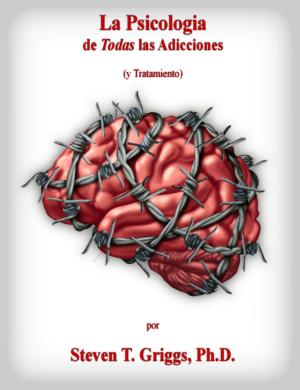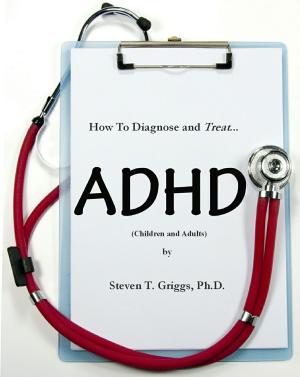The Psychology of Forgiveness
Nonfiction, Health & Well Being, Psychology, Cognitive Psychology, Self Help, Mental Health, Happiness| Author: | Steven T. Griggs, Ph.D. | ISBN: | 9781301570027 |
| Publisher: | Steven T. Griggs, Ph.D. | Publication: | April 6, 2013 |
| Imprint: | Smashwords Edition | Language: | English |
| Author: | Steven T. Griggs, Ph.D. |
| ISBN: | 9781301570027 |
| Publisher: | Steven T. Griggs, Ph.D. |
| Publication: | April 6, 2013 |
| Imprint: | Smashwords Edition |
| Language: | English |
This ebook is about Forgiveness. Like Procrastination and Guilt, Forgiveness is a deep form of ambivalence and it negatively affects behavior, even though you won't find it in the Diagnostic and Statistical Manual of Mental Disorders. Not forgiving is one of those nagging little voices in the back of our minds that reminds us we have unfinished business. When you read this, if you hear it, you haven't forgiven.
I write about issues I see in the office as an outpatient psychologist, and Forgiveness, or lack thereof, is HUGE. It seems to be central to so many other problems, and related to dozens of others beyond those. It turns out Forgiveness plays a significant role in establishing mental equilibrium--read Mental Health. It interacts with anxiety and addictions, underlies procrastination and guilt, powers up assertiveness, immeasurably improves relationships, helps parents cope with kid's and teen's behaviors, lightens mood and greatly improves self-esteem.
How could this one "condition" do all that? Well, that's the subject of this ebook.
I start out by defining Forgiveness, and the underlying ambivalence it embodies. Next are the six reasons we SHOULD forgive, followed by the top ten reasons we DON'T WANT TO forgive. Notice there are more reasons to resist Forgiveness than to yield...This is the way we are wired. To undo and redo this bias in our makeup, we have to work the stages. There are six stages of Forgiveness, with an optional seventh.
The next section gives in-depth examples of real people struggling with real issues and trying to forgive. I walk you through the seven stages with each case, showing how to do it.
Then, just for fun, I talk about some COMMON examples, like dealing with the DMV, telephone companies, insurance companies (my personal favorites) and drivers.
Then the subject gets serious again. I cover when and how to work with apologies, paying penance and faith.
What about Self-Forgiveness? This is a big one, and may be the best reason to look seriously at this ebook. I take you through the six (or seven) stages of Forgiveness and apply the same process to Self, using one aspect of self to heal the other. I include a simple format to self-analyze using SOAP (source, object, aim and pressure). This makes identifyiing issues much easier. Again, there are examples.
Lastly, there is a general discussion in which I discuss the most common reasons people fail to forgive. These involve fuzzy ways of thinking, not seeing things deeply enough, failures during the early stages of the work, distortions and the like. Defects in self-esteem can contaminate the process, so there is a little detour into how to fix that, although I've written another ebook on just that (The Four Powers of Self Esteem--also on this website). What is the relationship between Forgiveness, ego-strength and addiction dynamics? I finish with this and a comment on how Forgiveness paradoxically increases assertiveness.
As usual, the first Appendix has some meaningful and a few hilarious quotes on Forgiveness.
Like my other publications, this ebook has no fat. It has 39 pages. Think of it as a "Cliffs Notes" publication.
Nobody has published what I present as the glue that makes these concepts work. I think this is why my ebooks do a better job. It's process as well as content driven. The theory I espouse is different from standard explanations or other literature in this field. It works better. I know, because I've been using it with clients for years. I've put together a hard hitting, direct "How To" manual. My research has not turned up another ebook that does what mine does.
Ebooks are replacing standard books because they are easier and quicker to obtain. There is a need for immediate information, reasonably priced. I've priced this ebook to be at least twenty percent undermarket, considering what bookstores charge and the travel costs to and from. The ebook is now available for download
This ebook is about Forgiveness. Like Procrastination and Guilt, Forgiveness is a deep form of ambivalence and it negatively affects behavior, even though you won't find it in the Diagnostic and Statistical Manual of Mental Disorders. Not forgiving is one of those nagging little voices in the back of our minds that reminds us we have unfinished business. When you read this, if you hear it, you haven't forgiven.
I write about issues I see in the office as an outpatient psychologist, and Forgiveness, or lack thereof, is HUGE. It seems to be central to so many other problems, and related to dozens of others beyond those. It turns out Forgiveness plays a significant role in establishing mental equilibrium--read Mental Health. It interacts with anxiety and addictions, underlies procrastination and guilt, powers up assertiveness, immeasurably improves relationships, helps parents cope with kid's and teen's behaviors, lightens mood and greatly improves self-esteem.
How could this one "condition" do all that? Well, that's the subject of this ebook.
I start out by defining Forgiveness, and the underlying ambivalence it embodies. Next are the six reasons we SHOULD forgive, followed by the top ten reasons we DON'T WANT TO forgive. Notice there are more reasons to resist Forgiveness than to yield...This is the way we are wired. To undo and redo this bias in our makeup, we have to work the stages. There are six stages of Forgiveness, with an optional seventh.
The next section gives in-depth examples of real people struggling with real issues and trying to forgive. I walk you through the seven stages with each case, showing how to do it.
Then, just for fun, I talk about some COMMON examples, like dealing with the DMV, telephone companies, insurance companies (my personal favorites) and drivers.
Then the subject gets serious again. I cover when and how to work with apologies, paying penance and faith.
What about Self-Forgiveness? This is a big one, and may be the best reason to look seriously at this ebook. I take you through the six (or seven) stages of Forgiveness and apply the same process to Self, using one aspect of self to heal the other. I include a simple format to self-analyze using SOAP (source, object, aim and pressure). This makes identifyiing issues much easier. Again, there are examples.
Lastly, there is a general discussion in which I discuss the most common reasons people fail to forgive. These involve fuzzy ways of thinking, not seeing things deeply enough, failures during the early stages of the work, distortions and the like. Defects in self-esteem can contaminate the process, so there is a little detour into how to fix that, although I've written another ebook on just that (The Four Powers of Self Esteem--also on this website). What is the relationship between Forgiveness, ego-strength and addiction dynamics? I finish with this and a comment on how Forgiveness paradoxically increases assertiveness.
As usual, the first Appendix has some meaningful and a few hilarious quotes on Forgiveness.
Like my other publications, this ebook has no fat. It has 39 pages. Think of it as a "Cliffs Notes" publication.
Nobody has published what I present as the glue that makes these concepts work. I think this is why my ebooks do a better job. It's process as well as content driven. The theory I espouse is different from standard explanations or other literature in this field. It works better. I know, because I've been using it with clients for years. I've put together a hard hitting, direct "How To" manual. My research has not turned up another ebook that does what mine does.
Ebooks are replacing standard books because they are easier and quicker to obtain. There is a need for immediate information, reasonably priced. I've priced this ebook to be at least twenty percent undermarket, considering what bookstores charge and the travel costs to and from. The ebook is now available for download















